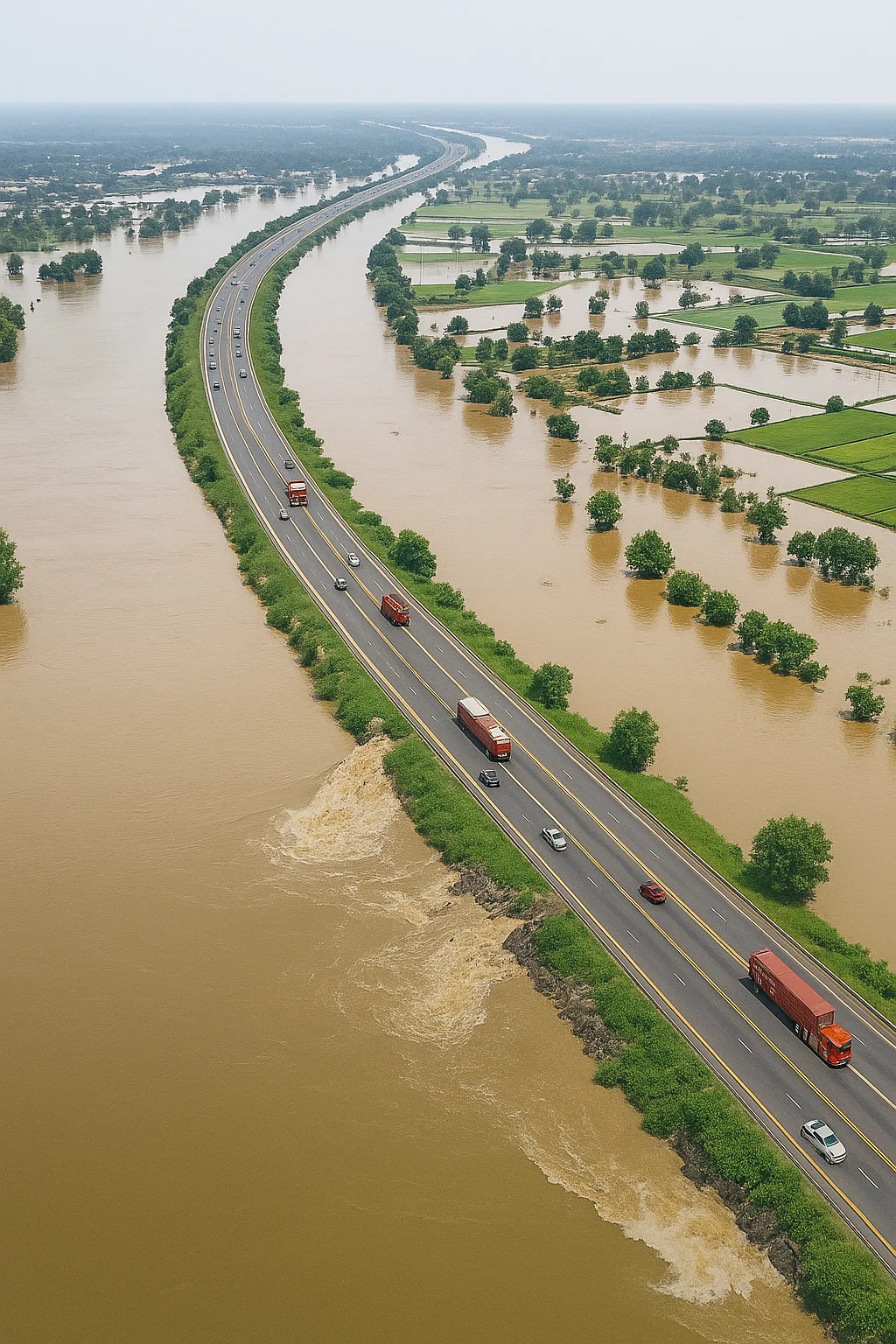Pakistan is gearing up for one of its most ambitious infrastructure projects – the Bullet Train. This historic initiative, expected to be launched by 2030, aims to revolutionize the country’s transportation system by drastically reducing travel times and introducing world-class facilities for passengers. The Bullet Train is being hailed as a milestone that will not only modernize travel but also strengthen the economy by connecting major cities at unprecedented speeds.
Connecting the Nation
The government has announced that the Bullet Train will initially operate between the busiest routes – Karachi, Lahore, and Islamabad. These cities are the backbone of Pakistan’s economic and social life, and the introduction of the Bullet Train is expected to bridge the distance like never before. A journey that currently takes 18–20 hours by conventional rail will be reduced to nearly 5 hours, thanks to the Bullet Train network.
Speed, Safety, and Comfort
Unlike traditional trains, the Bullet Train promises not just speed but also a comprehensive transformation in passenger experience. Equipped with cutting-edge safety systems, state-of-the-art seating, and advanced onboard services, the Bullet Train will provide a secure, comfortable, and reliable journey. Experts emphasize that it will be a game-changer, ensuring passengers travel in an environment of safety and luxury.
Economic Boost Through Connectivity
The economic potential of the Bullet Train cannot be overstated. By linking Karachi, Lahore, and Islamabad more efficiently, the Bullet Train will reduce delays in business travel, promote tourism, and accelerate trade. Business hubs across Pakistan will see improved coordination, boosting industries and creating new opportunities. Analysts predict that the Bullet Train will directly contribute to economic growth by improving logistics and enabling faster movement of both people and resources.
READ MORE:
https://freedompakistan.com.pk/swiatek-thrashes-anisimova-6-0-6-0-to-win-wimbledon-title/
Modern Facilities for Travelers
The Bullet Train project is not only about speed but also about redefining convenience. Authorities have confirmed that the trains will feature modern facilities such as Wi-Fi connectivity, better seating arrangements, improved food services, and wheelchair-friendly access. The Bullet Train will be designed to meet international standards, ensuring that Pakistan enters a new era of travel that rivals systems in Japan and China.
Challenges Ahead
While the project carries immense promise, there are challenges that must be addressed before the Bullet Train can become a reality. The first hurdle is infrastructure cost, which will require billions of dollars in investment. Land acquisition along proposed routes is another issue, as is ensuring the necessary technical expertise. However, government officials remain confident that through international collaboration, these challenges can be resolved, paving the way for the Bullet Train to run successfully.
Government’s Determination
Prime Minister Shehbaz Sharif has called the Bullet Train project a historic leap forward for Pakistan. He emphasized that such initiatives are essential for modernizing the nation and positioning it on par with advanced economies. The government’s determination to see the Bullet Train project through reflects a commitment to improving not just transport but also the lives of ordinary citizens who will benefit from faster and safer travel.
Environmental Impact
The Bullet Train also carries potential environmental benefits. By reducing reliance on road travel and air travel, the Train will help lower carbon emissions significantly. Experts argue that in a country where urban pollution is a growing issue, shifting to sustainable rail travel could be an effective solution. The eco-friendly technology of the Train ensures that Pakistan moves closer to a greener future.
Inspiration from Global Models
Countries like Japan and China have already demonstrated the transformative power of high-speed rail. Pakistan’s Train project draws inspiration from these global models, aiming to replicate their success while adapting to local needs. Learning from the experiences of nations that have successfully implemented such systems, the government hopes to overcome hurdles and deliver a reliable Train system to its people.
A Symbol of Progress
The Bullet Train is more than just a transportation project – it is a symbol of national progress. It represents Pakistan’s desire to embrace modern technology, compete globally, and provide its citizens with facilities that match international standards. Once operational, the Train will stand as a testament to the country’s resilience and ambition in overcoming infrastructural and financial barriers.
Future Prospects
Looking beyond 2030, the government envisions expanding the Bullet Train network to other parts of Pakistan, including Quetta, Multan, and Peshawar. Such expansions will further integrate the nation, ensuring that the benefits of the Bullet Train reach millions more. Experts believe that the success of the first phase will set the stage for long-term national connectivity.
Conclusion: A Defining Moment for Pakistan
The launch of Pakistan’s first Train is not merely about reducing travel time—it is about redefining the way Pakistan connects, grows, and evolves. By addressing challenges and investing in modern infrastructure, Pakistan is laying the foundation for a brighter future. The Train will be remembered as a defining moment in the nation’s history, proving that with determination and vision, even the most ambitious dreams can become reality.












